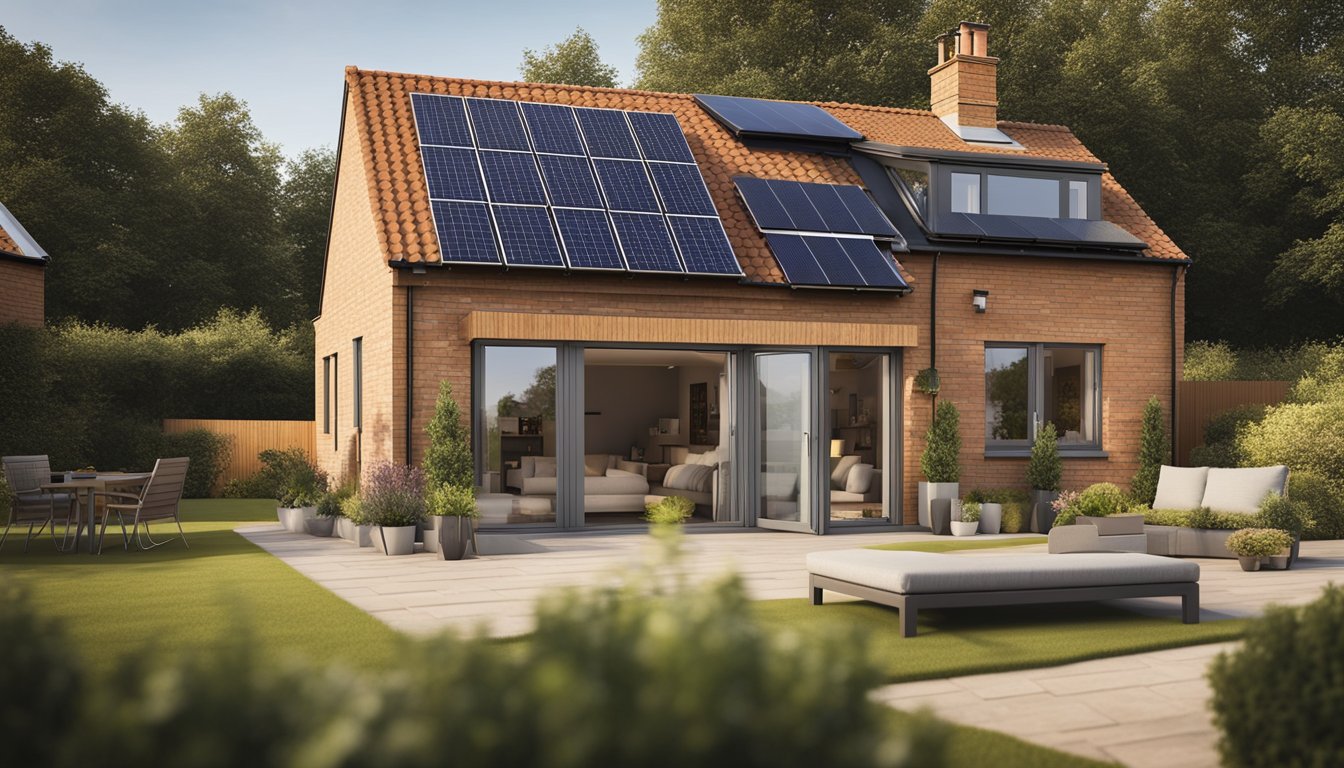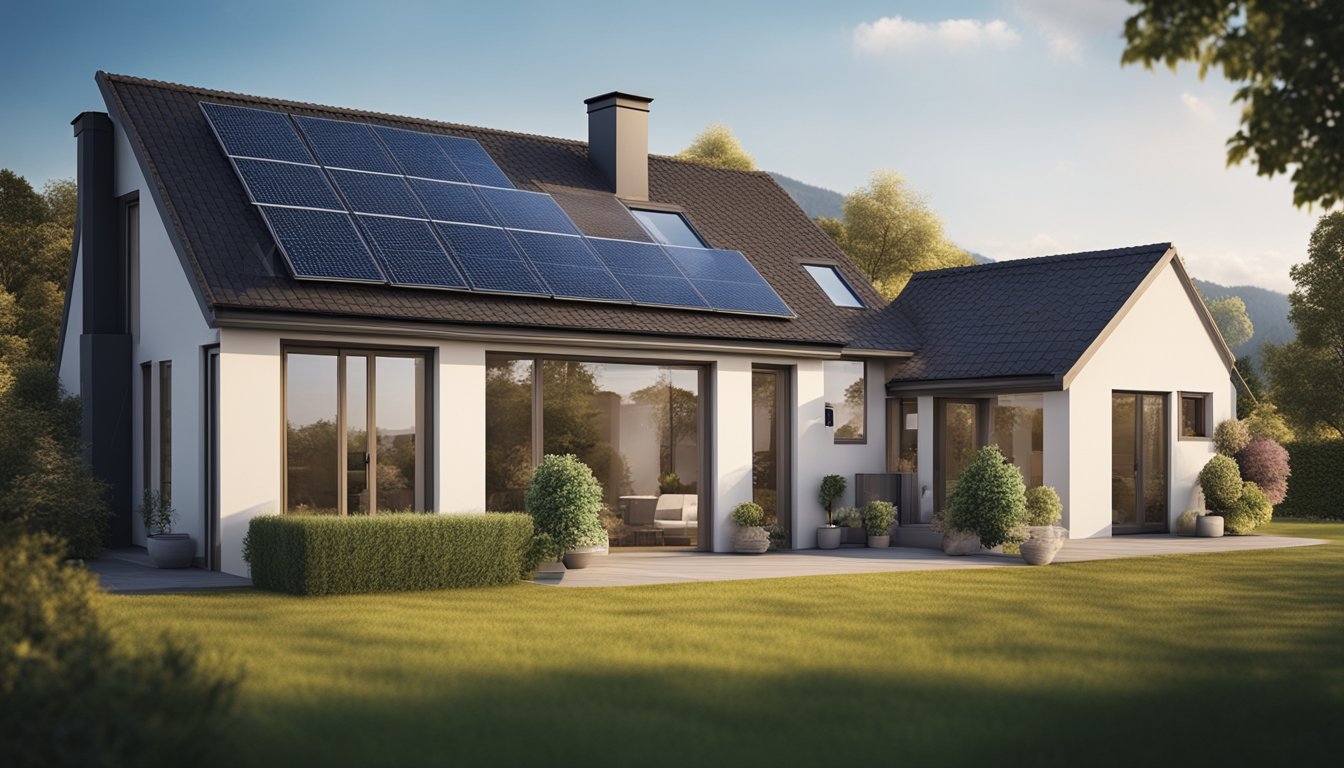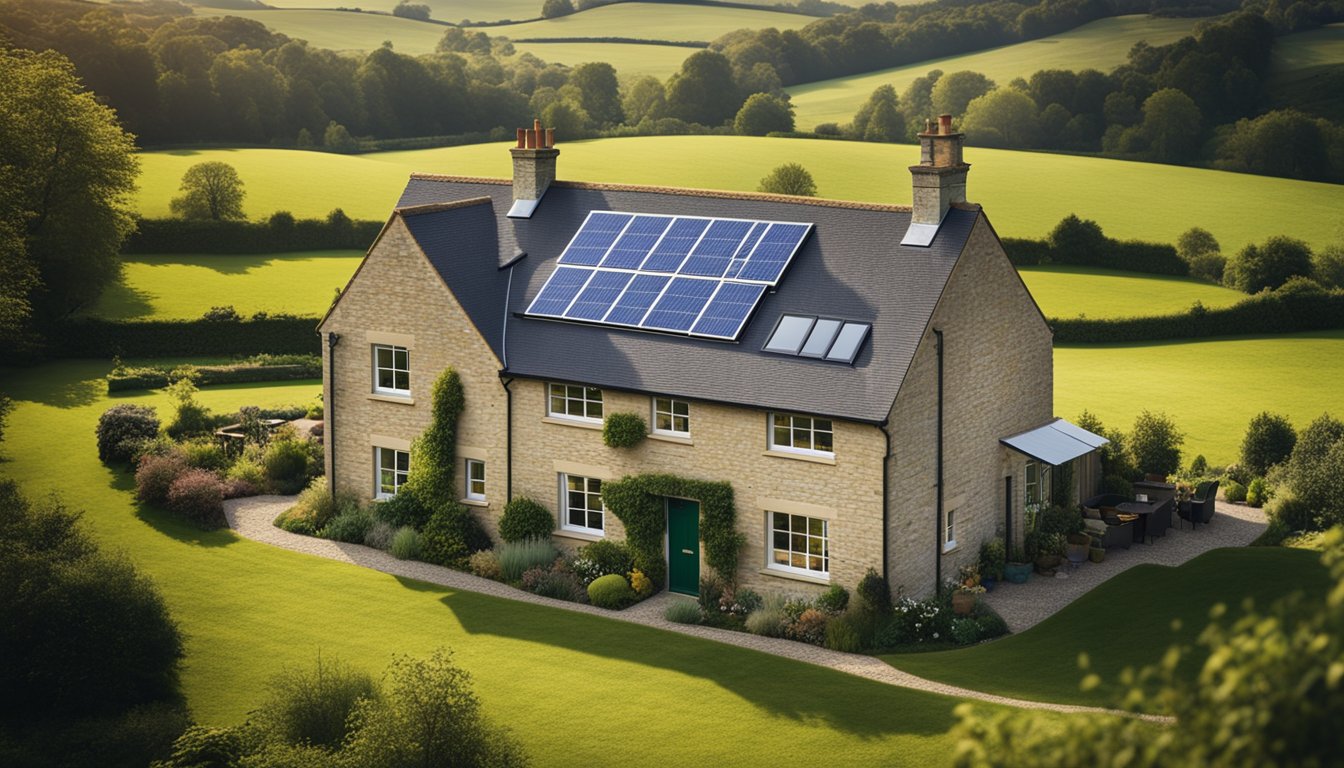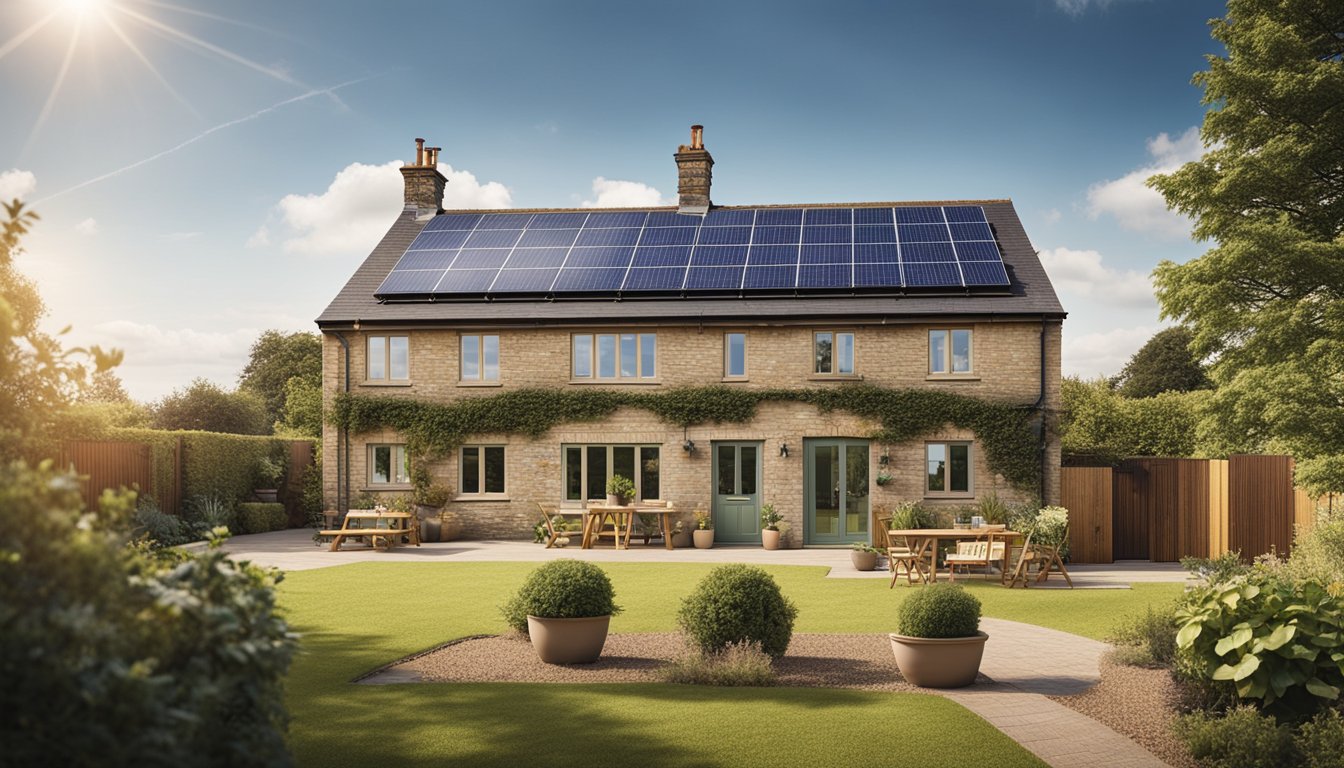Late updated: 28 Sep 2024 12:09
Written by: Oliver Bennett
Energy Efficiency Tips For Rural UK Homes: Sustainable Practices and Solutions
Rural homes in the UK often face unique challenges when aiming for energy efficiency due to their age and geographic isolation. Improving energy efficiency in these homes not only reduces costs but also contributes to lowering harmful emissions, supporting our goals for a sustainable future. By incorporating modern technologies like LED lighting and energy-efficient appliances, we can significantly decrease energy consumption.

Upgrading insulation and considering renewable heating solutions can make a substantial difference in maintaining a comfortable indoor environment. Financial assistance and government schemes may provide support for these improvements, so exploring options for grants or subsidies can be beneficial. Assessing Energy Performance Certificates is a practical step towards understanding where efficiencies can be gained in our homes.
Exploring these strategies can be both practical and effective, given the current economic and environmental climate. Breaking down barriers to energy efficiency not only benefits individual households but also strengthens our communities by fostering more sustainable living practices.
Key Takeaways
- Enhance home insulation and consider renewable options.
- Seek financial support for energy upgrades.
- Utilise Energy Performance Certificates.
Improving Home Insulation and Heating in Rural Homes

Rural homes often face unique challenges in energy efficiency, from outdated heating systems to poor insulation. By upgrading heating systems and expanding insulation measures, we can significantly reduce both energy consumption and greenhouse gas emissions.
Upgrading to Efficient Heating Systems
Transitioning to efficient heating systems is vital for enhancing energy efficiency in rural homes. Old gas boilers can be replaced with modern condensing boilers, which are more efficient and environmentally friendly. Ground source heat pumps (GSHPs) are another excellent option. These systems use the Earth’s natural heat to warm homes and are highly efficient over time. Despite the initial installation cost, GSHPs can drastically lower energy bills and reduce carbon footprints.
Central heating systems must also be evaluated. Installing energy-efficient heating controls such as programmable thermostats can optimise energy use. Simple changes like this can lead to significant savings in energy consumption and cost. Ultimately, adopting modern heating technologies helps combat fuel poverty by reducing long-term heating expenses.
Expanding Insulation Measures
Effective insulation is equally crucial in achieving energy efficiency. Cavity wall insulation and loft insulation are practical methods for reducing heat loss in rural homes. Proper insulation minimises energy waste and keeps homes warm, even during the coldest months. Adding insulated skirting is another technique to prevent draughts and maintain heat.
Windows also play a significant role. Installing double glazing or triple glazing can cut heat loss through windows and improve the overall comfort levels in the home. These measures not only reduce energy bills but also contribute to lowering the property’s carbon emissions. Together, these insulation improvements can create significant thermal efficiency gains, essential for both the environment and the homeowner's wallet.
Financial Support and Energy Performance Certificates

In rural UK homes, achieving energy efficiency is crucial both for reducing energy bills and minimising carbon dioxide emissions. Understanding Energy Performance Certificates (EPCs) and accessing available financial support can empower us to make effective energy-saving improvements.
Understanding and Improving Your EPC Rating
An Energy Performance Certificate (EPC) provides insights into the energy efficiency of a property. EPCs are graded from Band A (most efficient) to Band G (least efficient). Most rural homes in the UK fall within Bands D to G. Improving your EPC rating can lead to significant energy savings and reduced energy costs.
To enhance your EPC rating, consider implementing energy efficiency measures. Simple adjustments include adding insulation, upgrading to double-glazed windows, and using energy-efficient heating systems. These improvements not only contribute to a higher EPC rating but also benefit us with lower energy bills. Additionally, staying informed about the minimum energy efficiency standards helps ensure compliance and prevents potential issues, especially in rental properties.
Accessing Grants and Funding
Financial support is available to assist with energy improvements. Resources such as the Energy Company Obligation and the Household Support Fund offer grants to help with costs. Targeted financial aid is often directed at low-income households or homes within Bands E, F, and G, aiming to close the fuel poverty gap.
We can explore options such as the Help for Households initiative, which can subsidise costs or provide low-interest loans for energy-efficient upgrades. Accessing these funds can enable more households to achieve a better EPC rating, resulting in financial and environmental benefits. Understanding and leveraging these funds is crucial to making our homes warmer and more energy-efficient.
Frequently Asked Questions

Energy efficiency in rural UK homes can significantly reduce utility costs and environmental impact. From effective insulation techniques to leveraging government assistance, here are some frequently asked questions focusing on strategies to improve energy efficiency in rural areas.
What are the most effective methods for insulating rural UK homes?
Insulating lofts and walls can greatly improve a home's energy efficiency. Using materials like sheep's wool or rigid foam panels, commonly found in rural areas, can provide excellent insulation. Double-glazing windows also help in reducing heat loss and maintaining indoor temperatures.
How can UK government schemes assist with house insulation in rural areas?
The UK government offers several schemes that assist with house insulation improvements. These include grants and financial aid for installing energy-efficient measures through programs such as the Green Homes Grant and the Energy Company Obligation (ECO) scheme. Eligibility and assistance levels can vary, so it's worth exploring options pertinent to rural households.
What strategies can rural households employ to minimise electricity usage?
Switching to energy-efficient appliances and LED lighting can reduce electricity consumption. Implementing smart meters and time-of-use tariffs can further help manage energy use. Encouraging natural lighting and using sensors to automate lights can also conserve electricity.
Which areas of the home are most prone to heat loss and how can this be addressed?
Windows, doors, roof spaces, and unsealed floors are common areas prone to heat loss. Installing draught excluders, sealing gaps, adding loft insulation, and upgrading to energy-efficient windows and doors can effectively address these issues.
How can one carry out an energy efficiency survey for a rural home in the UK?
An energy efficiency survey can be conducted by contacting certified assessors who will evaluate the property. They provide an Energy Performance Certificate (EPC) that outlines the current efficiency level and recommendations for improvement. This service might be subsidised through available government initiatives.
What are some budget-friendly ways to enhance the energy efficiency of a rural UK home?
Installing insulation in lofts and draught-proofing are cost-effective measures. Updating to energy-efficient light bulbs and maintaining heating systems to run more efficiently can also improve energy efficiency. Community buying schemes for fuel and energy-efficient products might offer additional savings.
